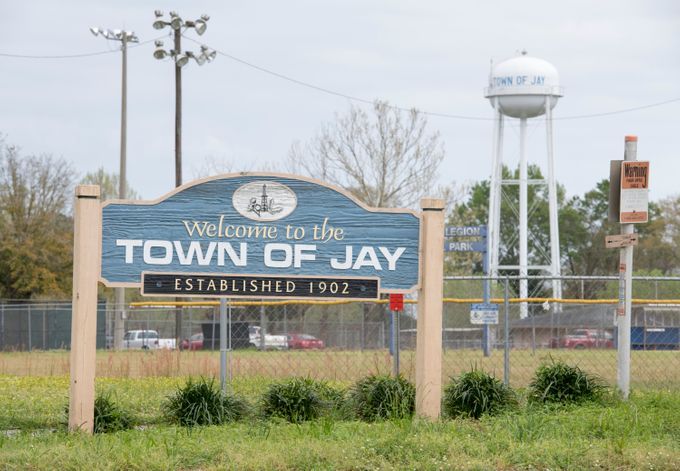
Florida is one of the least seismically active states, but residents in the northwest Panhandle area might say otherwise.
Three earthquakes struck the area between Jay, Florida and Flomaton, Alabama between March 6 and 12, measuring 2.7, 3.1 and 2.3, respectively. The cause, according to an expert interviewed by Pensacola News Journal, could be one of two things: oil drilling in Jay or an ancient fault system.
Houston-based Maverick Natural Resources owns the Jay oil field, which is near the Florida-Alabama state line. According to the company's website, the site has one billion barrels of original oil in place at Jay Field. The company uses "miscible nitrogen and water flood" to optimize oil production.
This series of earthquakes mirrors a similar 1997 seismic event in the area, according to Auburn University geologist Joan Gomberg, who wrote a paper for the US Geological Survey in 1999 describing the 1997 earthquakes. Gomberg's research concluded that there could be a link between oil drilling and the earthquakes.
Her research also stated the tremors could also be part of the Pollard-Foshee fault system, which runs through the area.
Gomberg told PNJ Wednesday the recent quakes were in the same general area as the 1997 quakes.
"There is a major ancient fault system running through the area," she said in the article.
Gomberg said the quakes could be related to natural or human activity but did not confirm or deny that they were connected to oil drilling in the area.
Local meteorologist Spinks Megginson provided real-time earthquake coverage on his RedZone Weather website and social media channels. Megginson told Newsweek he'd been in contact with USGS geophysicists, and that it is next to impossible that oil drilling or fracking directly caused the earthquakes.
"Our area lies along a normally inactive fault line known as the Bahama Fracture Zone," Megginson said. "Earthquakes generally don't happen along the fault, but seeing minor activity like this is not uncommon or unprecedented."
The director of Alabama's Geological Investigations Program told Al.com on Thursday the quakes are part of "normal seismic activity."
Sandy Ebersole, who heads the division of the Geological Survey of Alabama told AL.com that documents and studies earthquakes, said it's not uncommon to have multiple small-scale earthquakes back-to-back.
"We do have episodes of this kind of seismic activity clusters once in a while," Ebersole said in the article. "That's normal seismic activity for our area."
The Panhandle quakes aren't the only recent tremors in the Sunshine State, however.
Florida Today reported several residents of the state's west-central Space Coast experienced strange rumbling that shook portions of Merritt Island, Viera, Cocoa, and possibly as far away as Lake Mary, about 6 p.m. March 8.
Unlike the Panhandle quakes, the Space Coast shaking was not strong enough to be picked up by the U.S. Geological Survey, but many compared the two incidents nonetheless, the article said.
Uncommon Knowledge
Newsweek is committed to challenging conventional wisdom and finding connections in the search for common ground.
Newsweek is committed to challenging conventional wisdom and finding connections in the search for common ground.
About the writer
To read how Newsweek uses AI as a newsroom tool, Click here.








